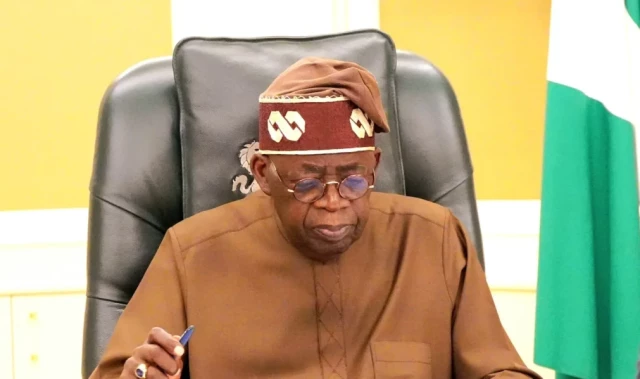The Independent Media and Policy Initiative (IMPI) said the economic policies of the Bola Tinubu administration will set new records in 2025 based on current trends in the economy.
In a policy statement on Sunday issued by the chairman, Niyi Akinsiju, IMPI said it reached the conclusion after analysing the economy since the introduction of the Tinubu reforms 19 months ago.
It said the efforts of Tinubu’s administration in 2024 yielded notable improvements in petroleum industry output despite mounting challenges.
“For instance, the local refining of petroleum and the complete deregulation of the downstream sector of the oil industry have led to price competition on petrol and made smuggling of petroleum products across the country’s borders unattractive.
“The approval of five oil asset sales and two Final Investment Decisions (FIDs) in 2024 also elicited positive feelings from foreign investors willing to do business in Nigeria’s energy sector,” said the group.
It added that in 2025, oil sector analysts projected that production would likely average 1.7 million barrels per day (bpd) and close the year at 1.78 million bpd.
To enhance crude oil production, it noted that the president signed three executive orders (EOs) in February 2024 to improve the investment climate and position Nigeria as the preferred investment destination for the petroleum sector in Africa.
It also said the plan to hold a fresh oil licencing round in 2025 was focused primarily on handing out oil blocks that remained undeveloped.
IMPI said the federal government would accomplish its target of increasing crude oil production to 2.06 barrels per day as proposed in the federal budget for 2025.
The group admitted that the naira lost a chunk of its value, especially in 2024, when it depreciated by 40.9 per cent before appreciating in December.
It, however, said this had a domino effect in ensuring a trade surplus for the country, reflecting a strong contribution of the non-oil sector for the first time in recent years.
“CBN data for October 2024 highlighted a positive trade performance driven by more substantial export earnings than imports. This reflects a third consecutive quarter of trade surplus in 2024.
“The trade surplus expanded to 2.21 billion dollars, up from 2.07 billion dollars in September. This improvement was fuelled by a 3.51 per cent rise in total exports, which increased to 5.02 billion dollars from 4.85 billion dollars the previous month,” said IMPI.
The group added that export growth was attributed to higher values in crude oil and non-oil products.
It said though crude oil and gas exports continued to dominate Nigeria’s export landscape, accounting for 87.74 per cent of total exports, non-oil exports recorded impressive growth.
IMPI said non-oil exports increased by 19.23 per cent to $0.62 billion from $0.52 billion in September.
“Brazil emerged as the top destination for Nigeria’s non-oil exports, followed by the Netherlands, Malaysia, Japan, and Germany,” it said.
It said to highlight Nigeria’s growing export competitiveness in the global market, the Nigeria Customs Service (NCS) declared that it recorded an impressive total Cost, Insurance and Freight (CIF) value, which rose to N136.65 trillion in exports in 2024 from N42.77 trillion in 2023.
It said this translated to a 219.5 per cent increase, noting that exports surged from 3.70 billion kilogrammes in 2023 to 12.35 billion kilogrammes in 2024.
The group said this also helped enhance inflows into the federation account and paved the way for increased disbursements to all the tiers of government, especially in Q3 2024.
It said: “The third quarter of 2024 recorded more money flowing into Nigeria’s federation account, which grew to N6.86 trillion.”
The IMPI said the increase in revenue was due to higher receipts from corporate tax and VAT, which accounted for 81 per cent of the inflow into the federation account.
IMPI added that the ongoing rebasing of Nigeria’s Gross Domestic Product (GDP) would further show the resilience of the economy.




















